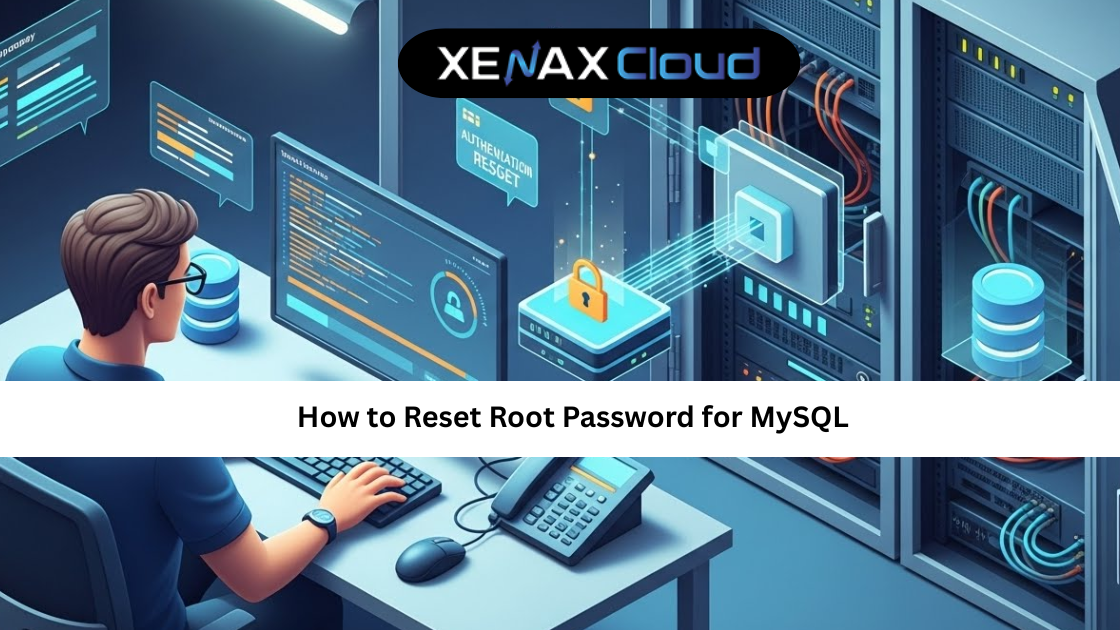Hey, developers, IT pros, and business owners in India, USA, UAE, UK, Germany, Japan, Canada, Switzerland, France, and beyond! The global digital economy is booming, with India’s digital market projected to hit $1 trillion by 2030 (per NASSCOM) and the global cloud computing market expected to reach $1.6 trillion by 2030 (per Grand View Research). Whether you’re managing a SaaS platform in Mumbai, a fintech app in Dubai, or a gaming server in Tokyo, securely transferring files between servers is critical. Enter the SCP i command—a powerful Linux tool for secure file transfers. With cyberattacks costing Indian businesses ₹2,500 crore annually (per PwC 2024) and strict regulations like India’s DPDP Act, mastering the Linux SCP command and SCP show progress ensures secure, efficient file management on your hosting infrastructure.
Why does this matter? The SCP i command (Secure Copy with identity file) allows you to transfer files securely between servers using SSH, perfect for businesses managing sensitive data. Paired with XenaxCloud’s VPS and dedicated servers, it’s a game-changer for developers and businesses. In this 3000-word guide, we’ll dive into the Linux SCP command, explore SCP show progress for tracking transfers, and show how XenaxCloud’s hosting solutions—like VPS and Indian RDP—empower businesses in India, USA, UAE, UK, Germany, Japan, Canada, Switzerland, France, and globally. Let’s dive in and secure your file transfers!
What is the SCP i Command?
The SCP i command is a Linux command that uses the Secure Copy Protocol (SCP) to transfer files securely between a local and remote server or between two remote servers. The -i flag specifies an identity file (private SSH key) for authentication, ensuring secure, encrypted transfers. Unlike FTP, SCP leverages SSH for encryption, making it ideal for businesses handling sensitive data. XenaxCloud’s Linux-based VPS and dedicated servers provide the perfect environment for mastering SCP.
- Key Benefits:
- Secure file transfers with SSH encryption.
- Supports identity files for key-based authentication.
- Tracks transfer progress with SCP show progress options.
- Compatible with XenaxCloud’s Linux VPS.
- Compliant with DPDP Act and global data privacy laws.
Why Businesses and Developers Need the Linux SCP Command
Developers and businesses in India, USA, UAE, UK, Germany, Japan, Canada, Switzerland, France, and global markets rely on the Linux SCP command for:
- Security: Encrypts file transfers to protect sensitive data.
- Efficiency: Transfers files directly between servers without intermediaries.
- Automation: Integrates with scripts for automated backups or deployments.
- Compliance: Ensures secure data handling for DPDP Act and GDPR.
- Scalability: Works seamlessly on XenaxCloud’s VPS and dedicated servers.
XenaxCloud’s Indian RDP simplifies server management for non-technical users, making SCP accessible to all.
Benefits of Using the SCP i Command
Here’s why the SCP i command is essential for your hosting environment:
Secure File Transfers
- Why It Matters: Protects sensitive data during transfers.
- Advantage: Uses SSH encryption for end-to-end security.
- Use Case: Transferring customer data for a UAE fintech app.
- XenaxCloud Advantage: Secure VPS with Imunify360.
Key-Based Authentication
- Why It Matters: Passwordless logins enhance security.
- Advantage: The
-iflag uses SSH keys for authentication. - Use Case: Automating backups for a Mumbai SaaS platform.
- XenaxCloud Advantage: SSH access on dedicated servers.
Progress Tracking
- Why It Matters: Monitoring large file transfers saves time.
- Advantage: SCP show progress with the
-vflag orrsync. - Use Case: Tracking database transfers for a Japanese gaming server.
- XenaxCloud Advantage: High-bandwidth VPS.
Cross-Platform Compatibility
- Why It Matters: Works across Linux, macOS, and Windows (via tools like PuTTY).
- Advantage: Transfers files between diverse server environments.
- Use Case: Syncing code between a Canadian developer’s local machine and a remote server.
- XenaxCloud Advantage: Flexible VPS OS options.
Cost-Effectiveness
- Why It Matters: Free tool included with Linux servers.
- Advantage: No additional software costs for secure transfers.
- Use Case: A Delhi startup transferring files on a budget.
- XenaxCloud Advantage: Affordable VPS starting at ₹500/month.
How to Use the SCP i Command on XenaxCloud Servers
Here’s a step-by-step guide to using the SCP i command on XenaxCloud’s Linux servers.
Step 1: Set Up Your XenaxCloud VPS
- Choose a Plan:
- Entry-Level: 1 vCPU, 2GB RAM, 50GB SSD, ₹500/month.
- Mid-Tier: 2 vCPUs, 8GB RAM, 100GB NVMe SSD, ₹2,000/month.
- High-End: 4 vCPUs, 16GB RAM, 200GB NVMe SSD, ₹5,000/month.
- Provider: XenaxCloud’s VPS.
- Install OS: Choose Ubuntu or CentOS for SCP compatibility.
Step 2: Generate and Configure SSH Keys
- Generate SSH Key:
ssh-keygen -t rsa -b 4096 -C "your_email@example.com"- Save the key (e.g.,
~/.ssh/id_rsa).
- Save the key (e.g.,
- Copy Public Key to Remote Server:
ssh-copy-id -i ~/.ssh/id_rsa.pub user@remote_server_ip - Use Case: Setting up key-based authentication for secure SCP i command transfers.
Step 3: Use the SCP i Command
- Basic Syntax:
scp -i ~/.ssh/id_rsa /local/path/to/file user@remote_server_ip:/remote/path - Example: Transfer a file from local to remote server:
scp -i ~/.ssh/id_rsa /home/user/data.txt user@192.168.1.100:/home/user/backups - Use Case: Backing up a database for a German SaaS platform.
Step 4: Enable SCP Show Progress
- Verbose Mode:
- Add
-vto display transfer details:scp -v -i ~/.ssh/id_rsa /local/path/to/file user@remote_server_ip:/remote/path
- Add
- Alternative with rsync:
- Use
rsyncfor progress bars:rsync --progress -av -e "ssh -i ~/.ssh/id_rsa" /local/path/to/file user@remote_server_ip:/remote/path
- Use
- Use Case: Monitoring large file transfers for a U.S.-based e-commerce platform.
Step 5: Secure and Optimize Transfers
- Secure with Firewall:
- Allow SSH (port 22):
sudo ufw allow 22 sudo ufw enable
- Allow SSH (port 22):
- Enable Imunify360: XenaxCloud’s security suite for malware and DDoS protection.
- Use CDN: XenaxCloud’s CDN for faster global file access.
- Backups: Automate backups for DPDP Act compliance.
- Use Case: Ensuring secure transfers for a UAE fintech app on XenaxCloud’s VPS.
This setup ensures you can master the SCP i command with XenaxCloud’s secure servers.
Advanced SCP i Command Tips
Transfer Entire Directories
- Command:
scp -r -i ~/.ssh/id_rsa /local/path/to/directory user@remote_server_ip:/remote/path - Use Case: Syncing a project folder for a Canadian developer.
Limit Bandwidth
- Command:
scp -l 8192 -i ~/.ssh/id_rsa /local/path/to/file user@remote_server_ip:/remote/path- Limits transfer to 8Mbps.
- Use Case: Managing bandwidth for a Mumbai startup during peak hours.
Use Compression
- Command:
scp -C -i ~/.ssh/id_rsa /local/path/to/file user@remote_server_ip:/remote/path - Use Case: Speeding up transfers for a Japanese gaming server.
Automate Transfers with Scripts
- Script Example:
#!/bin/bash scp -i ~/.ssh/id_rsa /local/backup.tar.gz user@192.168.1.100:/remote/backups- Save as
backup.sh, run withbash backup.sh.
- Save as
- Use Case: Automating nightly backups for a UK SaaS platform.
Monitor with SCP Show Progress
- Use rsync for Detailed Progress:
rsync --progress -av -e "ssh -i ~/.ssh/id_rsa" /local/path user@remote_server_ip:/remote/path - Use Case: Tracking large database transfers for a French e-commerce site.
Cost of Hosting for SCP i Command
- Shared Hosting:
- Cost: ₹149/month (shared hosting).
- Use Case: Testing small scripts or static sites.
- VPS Hosting:
- Entry-Level: ₹500–₹2,000/month (1 vCPU, 2GB RAM, 50GB SSD).
- Mid-Tier: ₹2,000–₹5,000/month (2 vCPUs, 8GB RAM, 100GB NVMe).
- High-End: ₹5,000–₹10,000/month (4 vCPUs, 16GB RAM, 200GB NVMe).
- Provider: XenaxCloud’s VPS.
- Dedicated Servers:
- Entry-Level: ₹6,000/month (Intel Xeon E5, 16GB RAM, 1TB NVMe SSD, 10TB bandwidth).
- Mid-Tier: ₹12,000/month (Intel Xeon E5, 32GB RAM, 2TB NVMe SSD, 20TB bandwidth).
- High-End: ₹25,000/month (Dual Intel Xeon, 64GB RAM, 4TB NVMe SSD, 50TB bandwidth).
- Provider: XenaxCloud’s dedicated servers.
- Domains: ₹500–₹2,000/year (domains).
- Add-Ons: ₹500–₹2,000/month for Imunify360, CDN, or extra IPs.
XenaxCloud’s VPS and dedicated servers provide cost-effective platforms for using the SCP i command.
SCP i Command vs Other File Transfer Methods
| Method | Security | Speed | Ease of Use | Use Case |
|---|---|---|---|---|
| SCP i Command | High (SSH) | Moderate | Moderate | Secure transfers on VPS |
| FTP | Low (No encryption) | Fast | Easy | Non-sensitive file transfers |
| SFTP | High (SSH) | Moderate | Moderate | Secure transfers |
| rsync | High (SSH) | Fast | Advanced | Large file transfers with SCP show progress |
XenaxCloud Advantage: The SCP i command offers secure, reliable transfers on VPS and dedicated servers.
Best Practices for Using SCP i Command
- Secure SSH Keys: Store keys in
~/.ssh/withchmod 600permissions. - Enable Imunify360: Protect servers with XenaxCloud’s security suite.
- Monitor Transfers: Use SCP show progress or
rsync --progressfor large files. - Automate Backups: Script SCP commands for nightly backups.
- Use RDP: Simplify server management with XenaxCloud’s Indian RDP.
Challenges and Solutions
- Authentication Errors: Incorrect SSH keys cause failures. Solution: Verify key permissions and use
ssh-copy-id. - Slow Transfers: Large files slow down SCP. Solution: Use compression (
-C) orrsync. - Compliance: DPDP Act requires secure data handling. Solution: Use XenaxCloud’s VPS with Imunify360.
- Technical Expertise: SCP requires Linux knowledge. Solution: Use Indian RDP for GUI-based management.
- Downtime Risks: Network issues can disrupt transfers. Solution: XenaxCloud’s 99.99% uptime ensures reliability.
Integrating SCP i Command with XenaxCloud’s Hosting Solutions
XenaxCloud’s hosting plans enhance the SCP i command:
Shared Hosting
- Best For: Small sites or testing scripts.
- Features: cPanel, free SSL, ImunifyAV.
- Cost: ₹149/month (shared hosting).
- Use Case: Testing SCP scripts for a blog.
VPS Hosting
- Best For: Growing apps needing flexibility.
- Features: Scalable resources, SSH access for SCP.
- Cost: ₹500–₹5,000/month (VPS).
- Use Case: Transferring files for a fintech app.
Dedicated Servers
- Best For: High-traffic or compute-intensive apps.
- Features: Global data centers, Imunify360, SSH access.
- Cost: ₹6,000–₹25,000+/month (dedicated servers).
- Use Case: Managing large database transfers.
Indian RDP
- Best For: Non-technical users.
- Features: GUI access for server management.
- Use Case: Managing SCP transfers remotely (Indian RDP).
Reseller Hosting
- Best For: Agencies managing client apps.
- Features: White-label hosting, cPanel for clients.
- Use Case: Hosting client sites (reseller hosting).
XenaxCloud’s global data centers ensure secure SCP transfers with compliance.

FAQs
What is the SCP i command?
The SCP i command uses SSH keys for secure file transfers on Linux servers. XenaxCloud’s VPS supports SCP with SSH access.
How do I use the Linux SCP command?
Use scp -i ~/.ssh/id_rsa /local/file user@remote:/path for secure transfers. XenaxCloud’s VPS ensures reliable SCP performance.
How can I enable SCP show progress?
Add -v for verbose output or use rsync --progress for detailed progress. XenaxCloud’s VPS supports both methods.
Is the SCP i command secure?
Yes, it uses SSH encryption. XenaxCloud’s VPS with Imunify360 ensures secure transfers.
What hosting supports the SCP i command?
XenaxCloud’s VPS, dedicated servers, and Indian RDP support SCP transfers.
Conclusion
The SCP i command empowers developers and businesses in India, USA, UAE, UK, Germany, Japan, Canada, Switzerland, France, and globally to securely transfer files on Linux servers. Whether you’re mastering the Linux SCP command, tracking transfers with SCP show progress, or hosting on XenaxCloud’s VPS or dedicated servers, XenaxCloud delivers secure, scalable solutions. Ready to streamline your file transfers? Explore XenaxCloud’s VPS, dedicated servers, or shared hosting today and power your digital success! Questions? Contact XenaxCloud’s support team now at 02:34 PM IST on September 17, 2025.






